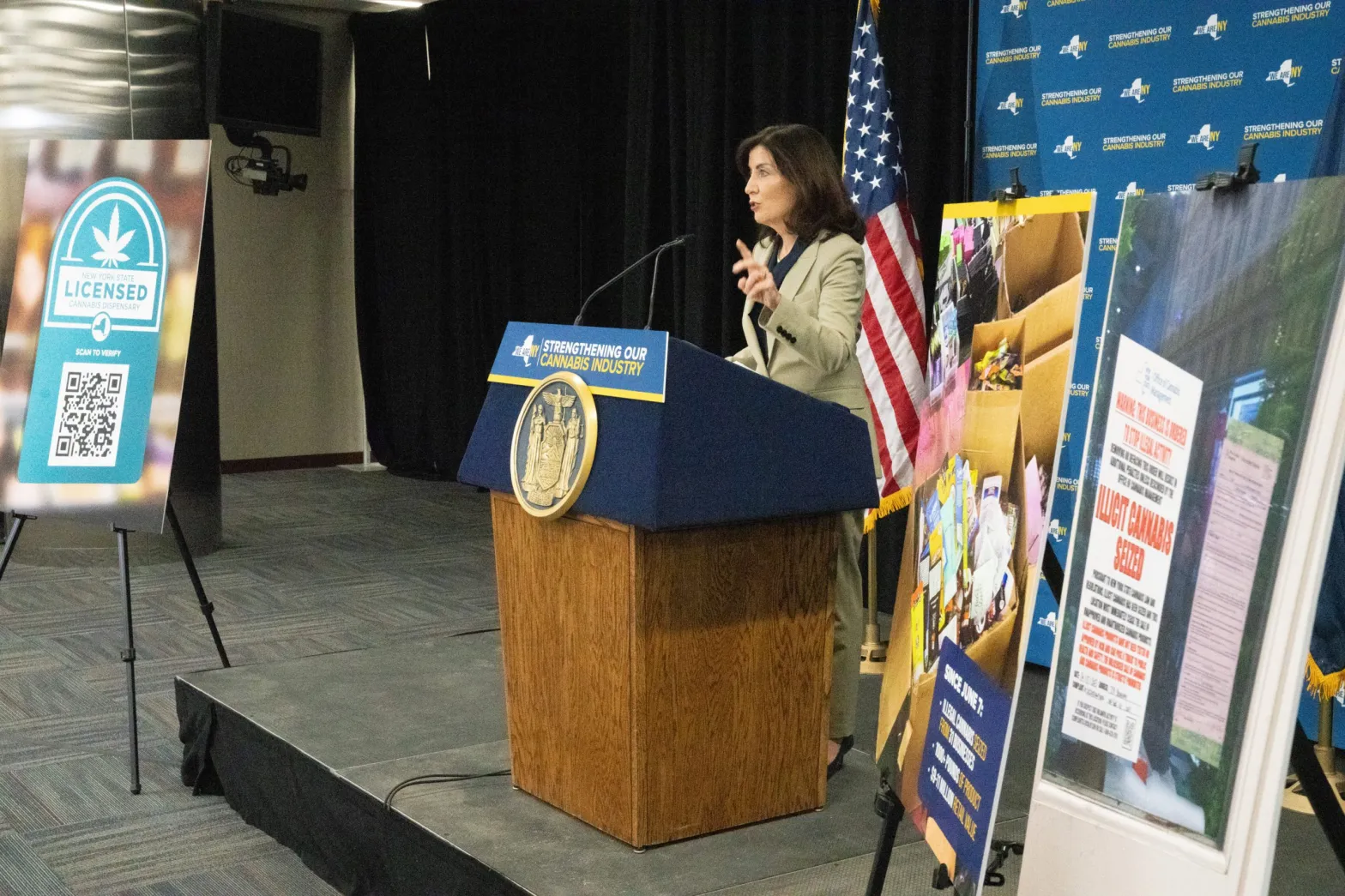In a surprising turn of events, Governor Hochul made her opinions of New York’s cannabis program rollout known to The Buffalo News editorial board approximately 1 week ago. Stating, “It’s a disaster. I will not defend that for one second.” Her recent statements have ignited a fiery debate on the state’s approach to legalizing adult-use cannabis and opening its licensing program. The Governor pointed fingers at convoluted laws and bureaucratic red tape, sparking conversations on accountability, regulation, and the future of cannabis legalization.
It is not uncommon for new policies, especially those as complex and divisive as marijuana legalization, to face hurdles. However, labeling the entire process a “disaster” raises critical questions. Is the issue rooted in the laws themselves, or is it a matter of implementation?

As we have encountered in every regulated state that we have worked in…and that’s pretty much every state that has legalized medical and/or adult-use cannabis, we have witnessed first-hand the challenges that come with a heavily regulated program. We cannot disagree with Governor Hochul as she focused in on the regulations and red tape. We have found that one of the most significant challenges highlighted is the intricate web of regulations surrounding the sale, distribution, and consumption of cannabis. For entrepreneurs and consumers alike, navigating these regulations can feel like traversing a legal labyrinth, fraught with uncertainties and inconsistencies.
Compounding these regulations with additional program features, such as social equity programs, often require substantial documentation that leave many otherwise applicable individuals out of a round and out of opportunity. Do complex cannabis programs –often designed with a goal of focusing on the mom-and-pop shops, economic impact areas, diversity, and social equity –ultimately leave these groups out to dry? One could argue that they do. Take Illinois, for example: Once boasting as vying to be the leader in social equity programs, found itself at the wrong end of lawsuits claiming that its program was ultimately inequitable.
So what are states to do? In our opinion, we have found that the less regulation over a state’s cannabis program, the less costly it becomes for individuals to participate. The less red tape and bureaucracy, the better. The more a state opens up the number of licenses available for groups to apply for, the less chokehold and improper influence Multi-State Operators have on the program.
In the meantime, we suggest learning the legal frameworks of laws throughout the country to formulate your opinion on what you believe will work best for the individual pursuing their dreams of entrepreneurship in the cannabis industry. Or, keep following our blog and social media to learn about industry updates as they occur!




